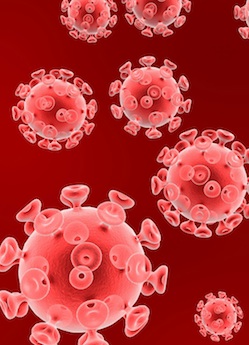By Krista Shaw
Phi Beta Kappa member Michel C. Nussenzweig contributed to innovative research that may provide the key to preventing the future spread of human immunodeficiency virus (HIV), a pandemic that has claimed the lives of over thirty-nine million people since 1983, according to the World Health Organization (WHO). WHO estimates that thirty-five million people worldwide are currently living with HIV or its advanced stage, acquired immune deficiency syndrome (AIDS).
Despite increased education on HIV transmission and symptoms, the virus has continued to spread and The Centers for Disease Control and Prevention (CDC) estimate that fourteen percent of people who have contracted HIV are unaware of their condition. Efforts to provide HIV treatments have been redoubled yet the virus is by no means controlled; CDC reports that a sobering sixty-three percent of those with HIV are not getting the antiretroviral therapy that prevents the virus from advancing to AIDS and death.
The treatment that is available for HIV, while effective, is ineffectively utilized. Additionally, there is no vaccine to prevent HIV from infecting new people. On February 18, 2015, The Scripps Research Institute (TSRI ) announced the discovery of a vaccine candidate that could finally stop the spread of HIV.
The team of researchers responsible for this massive advance was led by Michael Farzan and included Michel C. Nussenzweig of the Rockefeller University and the Howard Hughes Medical Center who was inducted to the Beta of New York chapter of Phi Beta Kappa at New York University in 1975. In the past Nussenzweig published research on a natural approach to HIV vaccines and on the effects of broadly neutralizing antibodies on HIV.
In the study by TSRI, which was published by Nature, preliminary testing on rhesus macaques showed that the new vaccine candidate prevents every strain of HIV-1, HIV-2, and simian immunodeficiency virus (SIV), a virus similar to HIV that affects rhesus macaques. Even when HIV was introduced at much higher concentrations than those that occur in normal human transmission, the antiviral agent was successful in inhibiting infection. The agent is also effective in stopping HIV infection for up to eight months.
TSRI’s new discovery builds on the laboratory’s previous research. In the past the research team discovered that an HIV virus particle can enter a cell only after it binds to two proteins on the surface of a white blood cell: a CD4 protein and a CCR5 co-receptor protein. Before their research, only the CD4 protein had been identified as necessary for viral entry. Once inside the cell, HIV can commandeer the cell’s normal machinery to reproduce itself and produce its own proteins.
Using their knowledge of the virus’s need to bind with both CD4 and CCR5 proteins in order to enter the host’s cells, the researchers of TSRI created an agent with sites that effectively simulate both of these proteins. The two binding sites on this agent, eCD4-Ig, attract HIV particles to bind with them so that the particles cannot adhere to and infect human cells. Thus far the eCD4-Ig agent has proven to be completely effective in stopping infection by HIV and SIV particles. In the United States alone, CDC estimates that 50,000 new people are infected with HIV every year, but this new eCD4-Ig agent could provide the solution to the spread of the disease and to the global HIV/AIDS crisis.
Krista Shaw is a senior at the University of Dallas majoring in English. The University of Dallas is home to the Eta of Texas Chapter of Phi Beta Kappa.




